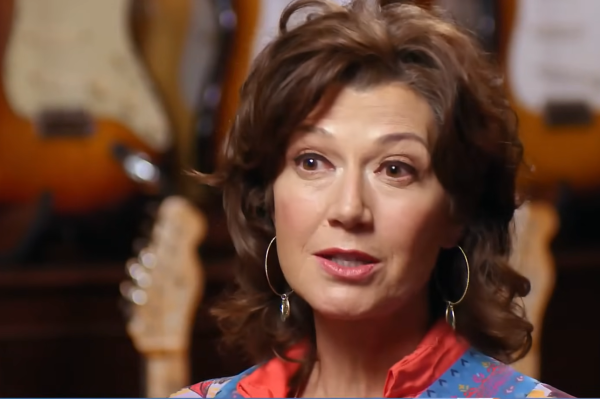How stereotypical Barbie might shatter stereotypes about the Bible

Within my close circles, I’m famous (or infamous) for obsessing about movies after seeing them. Unexpectedly, “Barbie” became one of those movies.
As a Middle Easterner and a convert to Christianity from Islam, I’ve taken a particular interest in this movie. After all, the Middle East isn’t known for being the bastion of women’s rights. Islam has been criticized for its views of women relative to men. As I examined the life of Jesus as accounted for in the Bible, I saw something profoundly different about this Middle Eastern man. He bucked the misogyny of His time in ways that gave life to women and men alike.
“Barbie,” sadly, does the opposite. It simply perpetuates bad stereotypes and degrades the beauty in the God-ordained gender binary.
The film echoes contemporary criticism that Barbie contributes to body-image anxiety in young girls and perpetuates harmful female stereotypes. In fact, the film’s lead character is named “Stereotypical Barbie.”
Consider “Barbie’s” glaringly binary imagery and content. There is no mistaking that both Barbieland’s female utopia and the Real World’s dystopia are populated by distinct males and females who act in traditionally (and comically) masculine and feminine ways. Men love trucks, powerful animals, sports, and “The Godfather.” Women dress in pink, care about hygiene, and are nurturing (of each other, not so much men). The filmmakers inadvertently put an exclamation point on the binary statement in the movie’s last scene when Stereotypical Barbie — now a real woman — checks in for a gynecologist appointment. Perhaps the filmmakers didn’t intend for the glaring binary to emerge, given that Hari Neff, a transgender actor, portrays one of the Barbies.
But emerge the binary does.
Interestingly, the Bible is denounced for describing the world with the same gender binary. Like the imagery in “Barbie,” the Bible declares that humanity is made up of women and men, distinctly, without a sense of fluidity or continuum. Genesis 1:27, Genesis 5:2, Matthew 19:4, and Mark 10:6 declare that God made humanity in His image, specifically “male and female.” The very fact that “Barbie” is so widely applauded as a statement of women’s empowerment yet depicts distinctions between men and women provides at least some evidence that no matter how much we wrestle away from it, the same binary reality that the Bible has been declaring for centuries pulls us back in.
Perhaps more subtle, yet no less striking, is the parallel between Barbie and Ken on the one hand and Adam and Eve on the other. Ken dolls were created solely to be Barbie’s boyfriends. In the film, despite his efforts at self-definition through cartoonish machismo, Ken can’t escape the fact that he’s derivative of — and therefore inferior to — Barbie.
Eventually, Barbie urges Ken to find his sense of worth apart from her. But Ken’s angst persists. He only exists because of Barbie and was made for her. But Stereotypical Barbie eventually persuades (stereotypical) Ken. “Barbie” gets at least this quite right: the order and seeming purpose of men’s and women’s creations don’t dictate the degrees of their dignity and worth. This subtle gem in a not-so-subtle movie shatters the stereotype of Eve’s creation as a declaration of women’s inferiority to men.
The stereotype goes like this. Eve’s creation from Adam’s rib in Genesis 2:21–22 assaults us with the idea that Eve is a derivative of Adam and that God created her not as an equal partner for Adam but as something like his Stepford wife (she’s Adam’s Ken). But Eve’s creation in Genesis 2 actually speaks to the equality the original couple was meant to have. Adam lovingly calls Eve “bone of my bones and flesh of my flesh” (v. 23). The apostle Paul advocates humility for any man who sees in Eve’s creation anything that might justify male preeminence. “For as woman was made from man,” he writes, “so man is now born of woman. And all things are from God” (1 Cor. 11:12).
Couple this with the fact that men and women each are created in God’s image (Gen. 1:27). Since no aspect of God’s image can be inferior to another, males and females bear God’s image equally. Further, Adam (men) and Eve (women) were created to have relationships with each other as an expression of their relationships with their Creator. Thus, the order of their creation has nothing to do with the quality of their value and purpose.
“Barbie” puts the degrading shoe on the male foot to make men uncomfortable, to show men how women feel when they see degrading female stereotypes paraded on screens and elsewhere. Fair enough, but it goes too far because, throughout the film, women’s value emerges at the expense of men’s dignity. Therein lies a contrast with Jesus. In numerous instances, Jesus vaunted women to their places as equals to men. He used women as proxies for God in His famous parables. Women are heroines at His birth, part of His ministry, and faithful at His death. Indeed, they were granted the honor of being the first witnesses to Christianity’s pinnacle miracle — Jesus’ resurrection.
While He chastised men’s treatment of women, He never belittled men. He shattered stereotypes that held women back without creating new stereotypes about men. A friend told me that during a conversation with a prominent atheist thinker in the U.K., the atheist acknowledged that, “Jesus was not a product of his time.” As a Middle Easterner, I heartily agree. That’s why women fled other religions and flocked to the fledgling Christian movement in the early centuries.
If “Barbie” offers us something of value, it is its contrast with Jesus’ way of dignifying women without denigrating anyone.
“Barbie” goes beyond male-female power struggles. “Barbie” is about what it means to be human and explores the messy real world where we forge our dignity and purpose through achievement, beauty and recognition. When Barbie encounters the ghost of her creator, Ruth Handler, she tells Barbie that humans create concepts like patriarchy and Barbie dolls to bring meaning to a messed-up world. Barbie’s response is thought-provoking. She wants to be part of those who make meaning, not the meaning they make.
Each of us makes our meaning and forges our value by creating social structures and plastic idolizations of ourselves to deal with our shortcomings, only to be riddled with more angst because we fail to live up to the very idols we make. The Bible confounds that stereotype, warning of the harm that befalls us when we look to man-made idealized images instead of focusing on the image of God we each bear. Since God’s image is infinitely beautiful and valuable, our reflection of His splendor defines our worth and meaning.
For the Christian, the cross is a striking declaration that our value is so high that God paid an infinite price to redeem us. To be sure, “Barbie” is not a Christian film, but it can get us to think about far more than we might think.
Abdu Murray offers the credibility of the gospel message as a speaker and writer with Embrace the Truth. He has authored several books, including “Saving Truth,” “Grand Central Question,” “Apocalypse Later” and his latest, “More than a White Man’s Religion.” For most of his life, Abdu was a proud Muslim until a nine-year historical, philosophical, theological and scientific investigation pointed him to the Christian faith. Abdu has spoken to diverse international audiences and has participated in debates and dialogues across the globe. He holds a B.A. in Psychology from the University of Michigan – Ann Arbor and earned his Juris Doctor from the University of Michigan Law School. Abdu lives in the Detroit area with his wife and their three children.
Website | embracethetruth.org | Twitter | @AbduMurray | Instagram | @abdumurray12 Facebook | /abdumurray | YouTube | @AbduMurrayOfficial | TikTok | @abdumurray





















